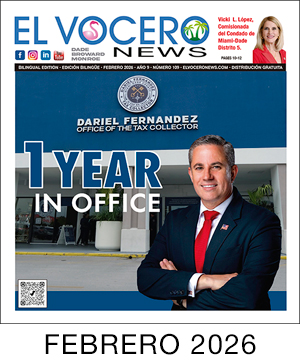El Seguro Social lo ayuda a protegerse hoy y mañana con beneficios financieros, información y herramientas que lo apoyarán en el camino de la vida. Si no tiene suficientes créditos del Seguro Social para obtener beneficios en su propio registro, es posible que pueda recibir beneficios como cónyuge. Su cónyuge debe estar recibiendo beneficios para que usted pueda obtener beneficios en su registro. Si su cónyuge no recibe jubilación o incapacidad, tendrá que esperar para presentar la solicitud en el registro de su cónyuge.
Además, para ser elegible para los beneficios de cónyuge, debe ser uno de los siguientes:
- 62 años de edad o más.
- Cualquier edad si tiene un hijo menor de 16 años a su cuidado o tiene una discapacidad y tiene derecho a beneficios en el registro de su cónyuge.
Si espera hasta alcanzar la plena edad de jubilación para recibir beneficios, recibirá el monto total del beneficio de su cónyuge, que es hasta la mitad del monto que recibe su cónyuge. También obtendrá el beneficio completo de su cónyuge si no tiene la plena edad de jubilación, pero cuida a un hijo y se aplica una de las siguientes condiciones:
- El niño es menor de 16 años.
- El niño tiene una discapacidad y tiene derecho a beneficios según el registro de su cónyuge.
Si recibe jubilación en su propio expediente, pagaremos esa cantidad primero. Si sus beneficios como cónyuge son mayores que sus propios beneficios, obtendrá una combinación de beneficios que equivale al beneficio mayor del cónyuge.
Considere este ejemplo: Sandy es elegible para un beneficio de jubilación mensual de $1,000 y un beneficio de cónyuge de $1,250. Si espera recibir el Seguro Social hasta alcanzar la plena edad de jubilación, recibirá su propio beneficio de jubilación de $1,000. Agregaremos $250 del beneficio de su cónyuge, para un total de $1,250 al mes. Sandy solo recibe un beneficio de cónyuge adicional porque su propio beneficio es menos de la mitad del beneficio de plena edad de jubilación de su cónyuge.
¿Quiere solicitar su jubilación, los beneficios de su cónyuge o ambos? ¿Tiene al menos 61 años y 9 meses? Si responde afirmativamente a ambas preguntas, visite www.ssa.gov/benefits/retirement para comenzar hoy.
¿Está usted divorciado de un matrimonio que duró al menos 10 años? Es posible que pueda obtener beneficios según el registro de su excónyuge. Para obtener más información, visite nuestro sitio web en www.ssa.gov/planners/retire/divspouse.html.
Eligibility for social security spouse’s benefits
Social Security helps you secure today and tomorrow with financial benefits, information, and tools that support you through life’s journey. If you don’t have enough Social Security credits to get benefits on your own record, you may be able to receive benefits as a spouse. Your spouse must be receiving benefits for you to get benefits on their record. If your spouse does not receive retirement or disability, you’ll have to wait to apply on your spouse’s record.
In addition, to be eligible for spouse’s benefits, you must be one of the following:
- 62 years of age or older.
- Any age if you have a child who is younger than 16 in your care or has a disability and is entitled to benefits on your spouse’s record.
If you wait until you reach full retirement age to receive benefits, you’ll receive your full spouse’s benefit amount, which is up to one-half the amount your spouse receives. You’ll also get your full spouse’s benefit if you are under full retirement age, but care for a child and one of the following applies:
- The child is younger than age 16.
- The child has a disability and is entitled to benefits on your spouse’s record.
If you receive retirement on your own record, we will pay that amount first. If your benefits as a spouse are higher than your own benefit, you will get a combination of benefits that equals the higher spouse’s benefit.
Consider this example: Sandy is eligible for a monthly retirement benefit of $1,000 and a spouse’s benefit of $1,250. If she waits for Social Security until her full retirement age, she will receive her own $1,000 retirement benefit. We will add $250 from her spouse’s benefit, for a total of $1,250 a month. Sandy only gets an additional spouse’s benefit because her own benefit is less than half her spouse’s full retirement age benefit.
Want to apply for either your retirement or your spouse’s benefits or both? Are you at least 61 years and 9 months old? If you answer yes to both, visit www.ssa.gov/benefits/retirement to get started today.
Are you divorced from a marriage that lasted at least 10 years? You may be able to get benefits on your former spouse’s record. For more information, please visit our website at www.ssa.gov/planners/retire/divspouse.html.














